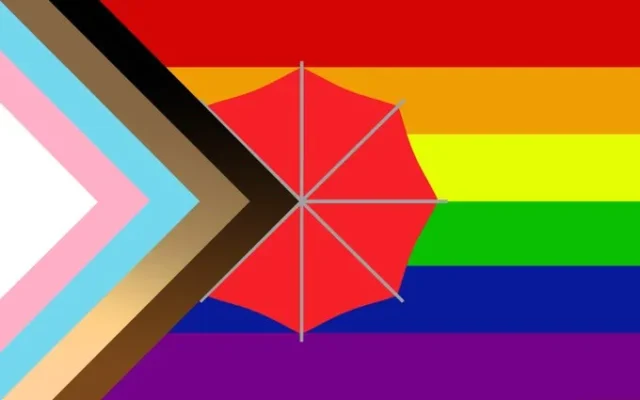“You lied to me,” my mom says, holding back tears. I’m 26, and we’re in our first-ever therapy session together.
She’s right. I did lie.

When I decided to start stripping a year prior, I knew I wasn’t going to tell my mom. She had always been the type of woman who views herself as a feminist, and views sex work as anti-feminist. At best, she saw sex workers as hapless victims; at worst, as reckless people with no self-respect who’ve lost control over the direction of their lives. I wasn’t ashamed to be a stripper, but I knew that if my mom found out, she wouldn’t try to stretch beyond her own beliefs about sex workers.
When a tax document from my job arrived at her house addressed to me, she googled the return address and figured out it was a strip club. I had to tell her something, so I said I was just a cocktail waitress.
She cried.
My mom made such a fuss over my “waitress” gig, I knew I’d made the right call by lying. She was already judging me heavily, and, frankly, I didn’t feel like holding any more of her baggage on the subject. To protect my mental health, I tried to keep my dancing a secret from her, until she eventually figured out the truth. Although she’s come a long way at this point, I sat through six years of my mother blaming me and my sex work for her anxiety and depression. In that very first therapy session, she told me that, since I was stripping, I “might as well be addicted to heroin.”
Ironically, I never worried about “coming out” as queer the way I worried about doing so as a sex worker, because my parents had always normalized queerness in our household and in their friendships. But the reasons many sex workers stay “in the closet” are often the same reasons that queer and trans people do. The stigma around our jobs has less to do with the work, and everything to do with the identities of the people doing the work – mostly women, femmes, and LGBTQIA+ people. “Sex worker” is far more than just a professional label; it’s a political, often gendered, identity that follows us for life, whether we like it or not.

Sex workers, queer people, and trans folks, and the violence that consistently rains down on our communities, are the scapegoats of patriarchy. Binary gender roles and marriage-focused sexuality are reinforced as religious institutions, legal systems, and communities around the world continue to persecute our existence. In the United States alone, criminalization of sex work, hate crimes, and the systematic attempt to erase trans people from society continue to haunt us.
I’ve heard the same refrain many times from sex working friends and colleagues: “I’m a feminist. So why am I afraid to tell my loved ones I’m a sex worker?” The beauty of feminism, in my eyes, is its multiplicity. Its both/and-ness. Feminism, at its core, is about liberation for all. For many, disclosing their identity as a sex worker or LGBTQIA+ person poses a potential threat to their physical or psychological safety. When contemplating disclosure, many people must account for their loved ones’ cultural, generational, and personal belief systems, as well as potential dangers like state-sponsored violence.
Culturally, we tend to equate “coming out” with “releasing shame” around one’s identity. That can be confusing for people who aren’t ashamed of who they are, but still feel afraid of, or uninterested in, coming out to their loved ones. The cultural forces that “other” LGBTQIA+ folks and sex workers are what make the pressure to come out a big deal to begin with. Don’t get me wrong – coming out is a big deal for a lot of people, and those who do it should be celebrated and supported! But sometimes, choosing to stay fully or partially closeted can be its own act of defiance.
As fate would have it, the night after I started writing this article, I witnessed a relevant conversation in the strip club dressing room. A group of my coworkers – all Black/AfroLatinx femmes and mostly queer – were having a conversation about how they have to hide their dancing from the world. One of them said, “Even though I’m not ashamed, it still makes you feel ashamed when everyone else tells you it’s wrong [to strip].” The last thing sex workers need (especially those who are marginalized by factors like race, queerness, gender, age, body type, immigrant status, addiction, etc.) is to feel like they should be forced to “come out” to prove that there is no shame in their game. It’s okay to have complicated feelings about your sex work, and it’s okay to keep it a secret from people who refuse to accept or understand you.
Of course, folks who choose not to disclose can still support their “out” community members. Even if you never tell anyone your sex worker or LGBTQIA+ identity, you can still stand in solidarity through your words, actions, and by educating yourself about the conjoined histories of our fight for social justice. “Coming out” is a very personal choice, and hiding your sex work from your family, friends, or community doesn’t necessarily make you less brave, less legit, or less of a feminist. Preserving queer, trans, and sex worker lives is its own radical resistance to the forces that seek to destroy us.
So yes, I lied to my mom. And I still don’t regret it.


What Do You Think?